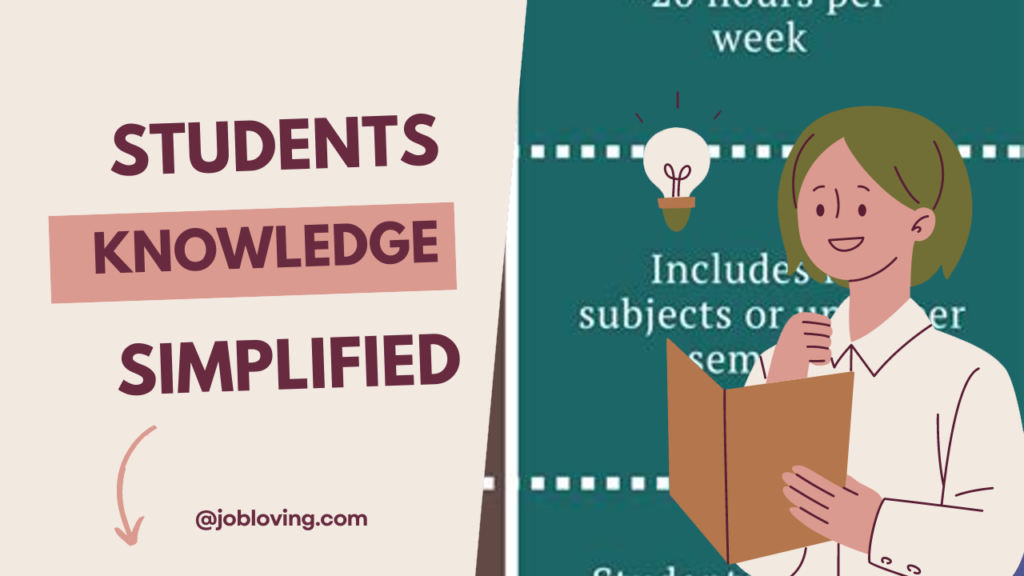Being a full-time student isn’t just about strolling onto campus and attending a few classes. It’s a serious commitment, and if you’re one of the brave souls taking on this adventure, you might be wondering just how many hours a week you’ll need to dedicate to your studies. Grab your favorite beverage, settle in, and let’s break it down together!
Typically, a full-time student is enrolled in at least 12 credits, which usually corresponds to around four classes per semester. Now, this is where things get interesting! Each class requires about 10 hours of commitment weekly, including lectures, studying, and assignments. So, when you do the math, this totals up to roughly 40 hours of academic work each week. Yes, you read that right! That’s like having a full-time job, minus the paycheck.
But wait, there’s more! On top of those hours spent in class and hitting the books, students typically dedicate another 20 hours per week to study-related activities. This includes researching for assignments, collaborating on group projects, or diving deep into those textbooks. The magical number of 36 hours per week is what you should ideally budget for your studies if you’re striving for that full-time status.
But before you start panicking about that hefty time commitment, let’s chat about options. Some students take only 12 credits, while others might opt for an ambitious 19. If you want to graduate in four years – which let’s be real, is the goal for many of us – you’d actually need to take at least 15 credits per semester. Yes, sometimes that number grows!
Moreover, let’s discuss the perks of being a full-time student. Most financial aid and scholarships require you to maintain full-time status. This can significantly impact your finances, helping ensure you can afford that degree. Plus, many colleges offer tuition caps for full-timers, which can save you a pretty penny.
Now, if you decide to balance work and school, which many do, aim for a part-time job that won’t bleed into your study time too much. Generally, 10-20 hours of work is common for maintaining that academic balance. But, be cautious! Working more than 20 hours can often lead to stress and impact your studies negatively.
Ultimately, it’s all about finding the right balance for you. Some students thrive by dedicating all their time to academics, while others juggle jobs, internships, and a social life. Whatever focus you choose, remember to manage your time wisely, prioritize your mental health, and know when to say no to that social event for the sake of your education!
So, as you chart your course in student life, know that the time commitment is serious – but the rewards can be just as profound. Embrace your full-time status, and happy studying!
What are the implications of full-time enrollment on financial aid and scholarships?
Full-time enrollment significantly impacts financial aid eligibility and scholarship opportunities. Many scholarships are exclusively available for full-time students, and financial aid amounts often hinge on maintaining full-time status. This can enhance financial support and reduce overall tuition costs due to capping policies at many colleges.
How does the workload of a full-time student compare to a traditional job?
The workload of a full-time student typically aligns with a full-time job’s time commitment, averaging around 40 hours per week dedicated to academic activities. This includes attending classes, studying, and completing assignments, similar to the expectations of a standard workweek.
What strategies can students employ to balance work and academic commitments effectively?
Students can balance work and academic commitments by prioritizing effective time management and self-awareness of their limits. Limiting work hours to 5-10 per week can allow for social engagement and reduce stress, while choosing flexible jobs related to their major can enhance both work experience and academic performance.
How does the choice between full-time and part-time enrollment affect a student’s college experience?
The choice between full-time and part-time enrollment significantly affects a student’s college experience. Full-time students often benefit from living on campus, engaging more deeply in campus life, and accessing resources tailored for their academic success. In contrast, part-time students may enjoy greater flexibility and the ability to manage work commitments, but they might miss out on certain campus experiences and networking opportunities.

